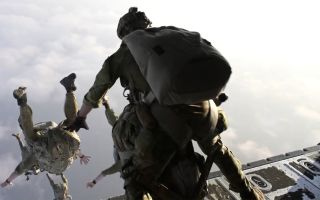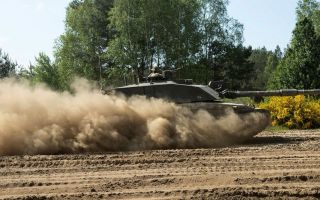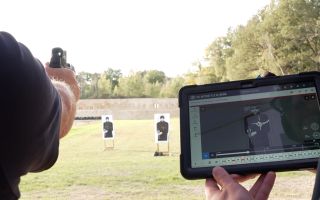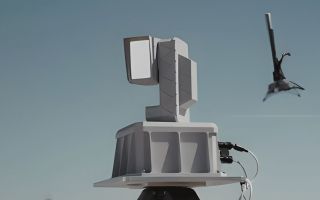Tri-Service
"Army Could Miss Reservist Targets By Two Years"
The Army is likely to miss its reservist targets by up to two years, according to a report.
An "urgent review" of the service's recruiting contract with private firm Capita is also needed amid fears that too many applicants "still lose faith and walk away" due to delays, the review recommended.
Retired Lieutenant General Robin Brims, who signed off the report, leads a panel known as the Reserve Forces' and Cadets' Association external scrutiny team.
It believes problems with the recruitment programme could mean Army Reserve numbers "fall away" once targets are achieved. The panel's report states:
"This year it is clear that increasing the size of the reserve is substantively on track: the Royal Navy looks set to hit its targets and the Royal Air Force has effectively done so already.
"Although the Army seems unlikely to meet its trained strength targets, its recruiting inflow is far healthier than in recent years and it should meet its trained strength targets albeit a year or two late. Given the other major changes that will still be under way in the Army over the same period, it seems unlikely that a short-term deficit of about 3,000 trained reserves for a year or so will have significant material impact on operational output."
Defence Secretary Michael Fallon told MPs he will consider the report's findings and recommendations before responding.
The government has been working to boost a shrunken regular Army of 82,000 with an increased reserve force of 30,000.
The report praises the Navy, Army and Royal Air Force for the "sustained increase" in the number of reserves in 2015/16, noting this is "well above" the rates of previous years.
But it believes the Army will struggle to reach its ultimate target of manning and trained reservists by April 2019, with this instead set to be hit "one of two years later". It said:
"Although time of flight is reducing, it still takes too long to progress recruits through the pipeline with the attendant risk that too many applicants still lose faith and walk away."
Addressing the contract, the team voiced concerns over the Army's recruitment centre at Upavon, Wiltshire - a joint Army-Capita programme which has responsibility for both regular and reservist recruiting.
The report recognised its "considerable" innovation, energy and resource although suspected efforts to address personnel shortfalls in the regular Army has affected reservist recruiting:
"Over the past three reports we have tended to give the Army's recruiting partnership the benefit of the doubt as it has found its feet and implemented temporary fixes.
"However, we are increasingly convinced that it is beset by flawed contract design and management, unduly slow delivery of a full operating capability and consequential systemic weakness."
"The current arrangements are sub-optimal for FR20 (Future Reserves 2020) and will remain so in steady state after FR20 targets are achieved, with the attendant risk that Army Reserve numbers will then fall away. We recommend an urgent contract review."









